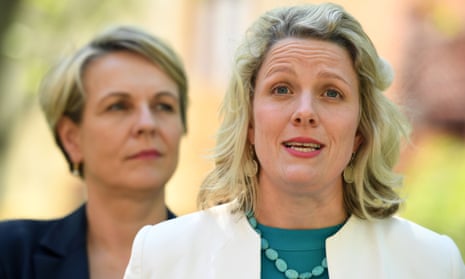The Australian parliament has failed to engage in sustained policy work about the impact of technological change, with critical issues such as encryption and the use of metadata considered on the run by MPs who aren’t across the detail, according to Labor’s innovation spokeswoman, Clare O’Neil.
O’Neil will use a speech to the tech industry on Tuesday to call for a significant policy reset, arguing the current regulatory framework is deficient and legislators “don’t have forever” to strike an effective balance between data and privacy.
According to a copy of the speech circulated ahead of the event, O’Neil will argue data is the oil of the 21st century. “It is so powerful, and so important, some countries are starting to talk about data collection as the means of a new form of colonialism.
“When something is this valuable, and this important, huge interests vested in continuing the current approach – where the regulatory framework is clearly insufficient – will dig in,” O’Neil will say. “With problems like this one, the longer we delay, the more painful the reform process will be.”
While acknowledging that she is “absolutely part of the problem” – meaning part of the harried class of parliamentarians considering proposals on the run – O’Neil will argue the current approach means important issues are overlooked because “technology is pretty peripheral to what we talk about in parliament”.
“When the parliament does talk about technology, the conversation tends not to be a quality one. We usually talk about tech in the context of a flare-up – a bill is introduced which relates to a pretty specific area of technology which forces a truncated and urgent discussion.
“It’s probably hard to understand, but our life in Canberra is extremely chaotic. We work very long hours and we are grappling with dozens of issues every day.
“Raising big and unfamiliar policy problems in the context of specific and urgent decisions just isn’t conducive to exploring the issues properly. We saw this with encryption and metadata, where even some of the people advocating for the legislation didn’t seem to understand it properly.”
She says the failure to deal with technological disruption in a wholistic way is a problem, because “for many Australians, technology is one of the biggest issues in their lives”.
O’Neil will pose 10 questions in Tuesday’s speech, ranging from whether privacy should be considered a human right, to how to regulate multinationals, to how to balance the need for protection for citizens and consumers more generally with the need for Australia to develop important digital industries.
The shadow minister says she doesn’t have answers to all of the questions, but what is required “is a big, sustained public conversation about how we are going to manage this massive change in our lives”.
“Technology is a powerful mechanism for us to address issues facing consumers, especially where choices have been limited, unfair or frustrating,” she will say. “But there are dangers too. If we want technology to be the friend of consumers, we need to get the policy frameworks right.”
O’Neil’s critique comes as the Morrison government is mulling its response to the digital platforms review undertaken by the Australian Competition and Consumer Commission earlier this year. The commission made more than 20 recommendations to force more regulation on Google and Facebook and to improve media competition.
